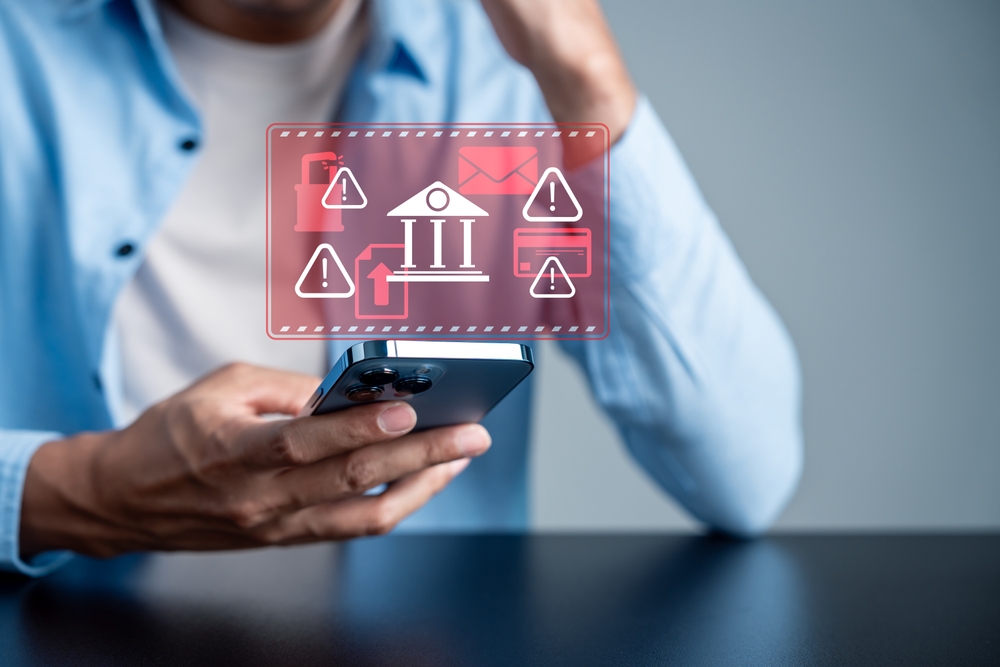
When most people think of financial theft, they picture hackers or strangers online. But sometimes, the biggest threats are much closer to home. Sadly, friends, roommates, partners, or even family members can access your finances when trust and access overlap. That makes it even more important to understand how to prevent your bank information from being stolen by people you know. Protecting your financial security doesn’t mean living in fear—it means creating healthy, respectful boundaries around money and privacy.
1. Keep Account Access Strictly Personal
One of the simplest ways to prevent your bank information from being stolen is by never sharing your login credentials. Even if you trust someone completely, access to your accounts opens the door to temptation or misuse. Instead, handle transactions yourself and use official bank apps rather than handing over cards or passwords. If someone insists they “just need to check something,” it’s okay to say no politely but firmly. Boundaries are a sign of responsibility, not distrust.
2. Enable Two-Factor Authentication on All Accounts
Most banks now offer two-factor authentication (2FA), which provides an extra layer of protection beyond your password. When you enable it, logging in requires a verification code sent to your phone or email, making it much harder for others to access your account even if they know your credentials. This is one of the most effective tools to prevent your bank information from being stolen by people you know who might try to snoop. It ensures that only you can authorize access to your account. Think of it as locking the door and keeping the key in your pocket.
3. Be Cautious with Shared Devices and Wi-Fi
If you live with roommates or family members, avoid logging into your bank accounts on shared devices. Even if someone isn’t intentionally trying to steal your information, saved passwords or browser autofill features can give them easy access. Shared or public Wi-Fi connections can also expose your banking data if not secured properly. To prevent your bank information from being stolen in these situations, use personal devices and private networks whenever possible. Logging out and clearing browser history after every session adds an extra layer of security.
4. Limit Who Knows About Your Financial Accounts
It’s common for close friends or relatives to know which bank you use, especially if you’ve discussed money or shared payments before. But that familiarity can sometimes make it easier for them to impersonate you or reset account access. Keeping details about your banking habits private is one of the most overlooked ways to prevent your bank information from being stolen. Avoid discussing account numbers, balances, or passwords in casual conversation. The less people know, the safer your finances remain.
5. Monitor Your Accounts Regularly
Checking your bank activity often is one of the easiest ways to catch suspicious behavior early. Set up alerts for withdrawals, transfers, or logins so you can react quickly if something looks off. Even small, unexplained transactions can signal a bigger problem. Regular monitoring doesn’t just help prevent your bank information from being stolen—it also ensures you can report unauthorized activity before it spirals. Staying aware keeps control firmly in your hands.
6. Keep Physical Documents Secure
Your bank statements, checks, and debit cards contain sensitive information that can be misused if left lying around. People you trust may come across them accidentally—or intentionally—if they’re not properly stored. Always keep important financial documents in a locked drawer or safe. If you need to dispose of papers, shred them first rather than tossing them into the trash. This simple habit can prevent your bank information from being stolen through physical access instead of digital theft.
7. Know the Signs of Financial Manipulation
Sometimes, theft doesn’t start with a stolen password—it begins with emotional pressure. Someone you know might guilt you into sharing account access, using your card, or lending money with promises to pay it back. These situations can blur boundaries and lead to deeper problems. Learning to recognize and say no to manipulation is a powerful way to prevent your bank information from being stolen under the guise of trust. True respect for your relationship means respecting financial boundaries too.
Protecting Finances Without Damaging Relationships
It’s possible to set firm boundaries and still maintain healthy relationships. Taking steps to prevent your bank information from being stolen by people you know isn’t a sign of paranoia—it’s an act of self-respect. You’re protecting not only your money but also your peace of mind. By using secure technology, practicing discretion, and maintaining awareness, you can create a financial safety net that keeps both your accounts and relationships intact. Trust may be earned, but access should always be limited.
Have you ever had someone close to you misuse your financial information? What boundaries or tools do you use to protect your accounts? Share your insights in the comments.
What to Read Next…
5 Simple Methods to Protect Your Identity From Cyber Theft
The AI Voice Scam That Tricks You Into Thinking a Loved One Is in Jail
6 Situations Where Cash Is Safer Than Digital Payments
10 Questions That Expose Whether a Household Is Financially Secure
The “Dirty Dozen”: The 12 Tax Scams the IRS Is Warning All Americans About
The post 7 Ways to Prevent Your Bank Information From Being Stolen by People You Know appeared first on The Free Financial Advisor.







